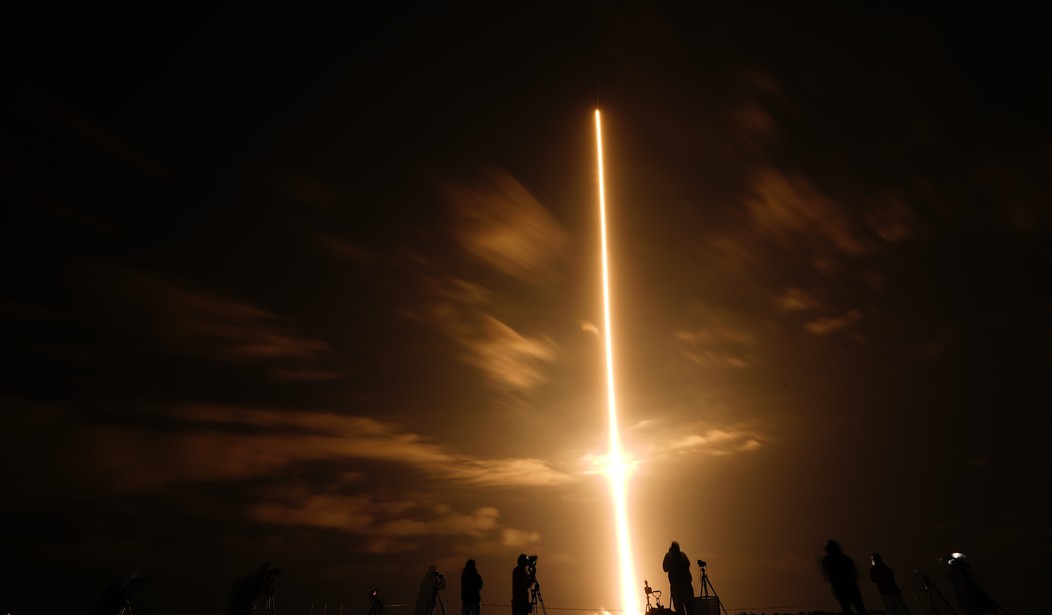Elon Musk must be flying directly over the target, because he sure is taking a lot of flak.
Buried in the news about Musk’s takeover of Twitter, about which I wrote brilliantly here, is another threat that isn’t down to Earth but rather up in space. Vladimir Putin has threatened to take out US civilian satellites that are being used to aid Ukraine’s war effort. It is widely believed he is referring to Starlink.
“We would like to emphasize the extremely dangerous trend that goes beyond the harmless use of space technologies, which clearly manifested itself in the course of events in Ukraine,” Mr. Vorontsov told a meeting of the First Committee of the United Nations General Assembly, according to remarks published by the Foreign Ministry. “We are talking about the use by the United States and its allies of civilian infrastructure components in space, including commercial ones, in armed conflicts.”
Mr. Vorontsov, who is deputy director of the Russian Foreign Ministry’s Department for Nonproliferation and Arms Control, didn’t name any company, but Elon Musk recently pledged that his company SpaceX would continue to fund access for the Ukrainian government to its Starlink satellite-internet system.
In addition, American satellite operators such as Viasat Inc., Maxar Technologies Inc. and Planet Labs PBC have contracts to provide services to different U.S. national-security agencies. Representatives from those companies either declined to comment or didn’t have a comment.
There is some irony in that. Musk has been viciously attacked as a Putin puppet for floating peace proposals, with many intelligence community types and Leftists in general accusing him of being a Putin puppet.
That is nonsense, of course. Musk was clearly proposing potential off ramps that would allow Putin to exit the battlefield more gracefully than a complete defeat would allow him, because it is widely feared that Putin would rather drop tactical nuclear weapons than face a humiliating and potentially, for him, fatal loss in the war. Short of total military defeat–which would include destroying the capability to rebuild a military–wars end through negotiations in most cases.
Starlink has emerged as an important tool for the Ukrainian military, keeping troops connected on front lines of the war where regular service isn’t available. Ukrainian officials have praised the system, pointing to instances where Starlink was able to provide connections after cruise-missile attacks damaged infrastructure, but have at times been wary of Mr. Musk.
Earlier this month, he tweeted that Crimea had been part of Russia since 1783 until 1954, when Moscow transferred the peninsula to the Ukrainian Soviet republic before illegally annexing it in 2014. He further annoyed some Ukrainians by tweeting that victory in a total war with Russia was unlikely because Russia had more than three times Ukraine’s population, before saying his company would continue to pay for the Starlink service.
In any case Musk’s musings don’t seem to have seduced Putin into forgiving him for making Ukraine’s battlefield victories possible. Starlink is perhaps the most important weapon on the battlefield in Ukraine, because it enables the dissemination of real-time intelligence that allows precision strikes and the efficient utilization of resources. Just as the F-35 and the F-22 are effective mainly due to their sophisticated ability to enable battlefield awareness, Starlink serves the same purpose in Ukraine’s ground warfare.
Intelligence and communication enable precision and therefore lethality. Modern warfare 101.
Putin knows this, and his threats to civilian space infrastructure signals the possibility of a huge escalation in the war. Attacking US civilian assets falls far short of direct military confrontation, but still would cross the line into direct conflict with the US.
Russia, too, relies on space infrastructure, but hardly to the extent the West does. And clearly its brute force approach in Ukraine demonstrates that neither precision nor intelligence play nearly the role in their military efforts as they do in Ukraine’s. Retaliation in kind would hurt, but a cutting off of Starlink access would hurt Ukraine far far more.
I am actually shocked that this threat to US civilian space infrastructure has not gotten more coverage. It is hardly as sexy and fun as the takeover of Twitter, which has provided substantial entertainment for conservatives. I have been reveling in the schadenfreude, and wading into the warm comforting pool filled with the tears of the Leftists. Yet this is serious.
There would be nothing fun about Russia taking out our satellites. It would be a huge step taking us closer to direct confrontation with Putin, rather than the proxy war we have now. Yet going this route could be very attractive to Putin because he could hit us where it hurts while plausibly arguing that his moves cost the US no lives, while ours have been costing Russians theirs.
One last note: attacking Starlink would hardly be easy, in the way that going after geostationary satellites would be. Starlink is a constellation of satellites in low earth orbit, not a sitting duck in a known stable location. Musk has launched over 3200 Starlink satellites already, although not all are operational. Taking out any one satellite would be easy enough, but Putin would have to take out many to accomplish his goal. There is substantial redundancy built into the system, and Musk sends up batches of satellites very frequently indeed. Launches occur nearly weekly.
Viasat is likely the most vulnerable satellite based service that Putin could damage, but also would be a relatively low-value target compared to Starlink or the surveillance providers. And while the surveillance services are nice to have, the US military could provide the necessary imagery as needed.








Join the conversation as a VIP Member